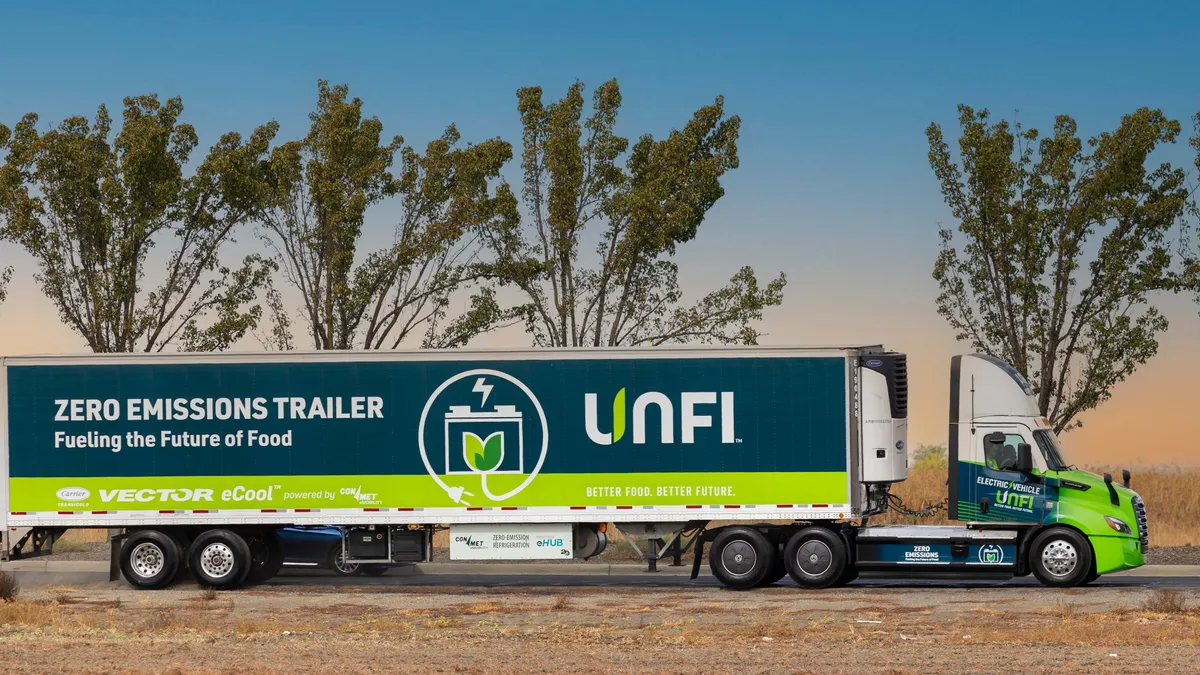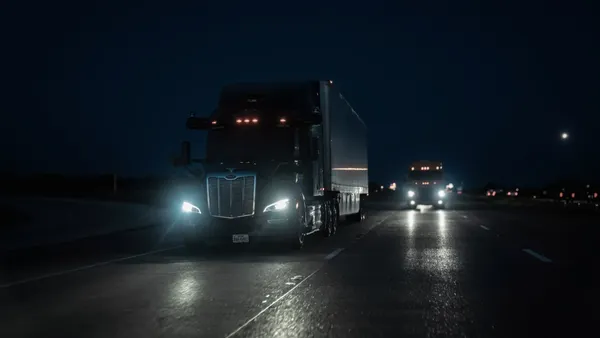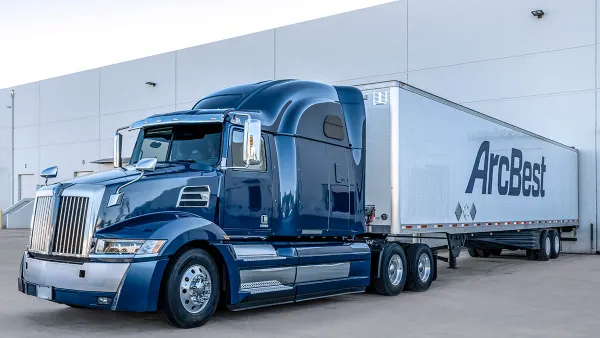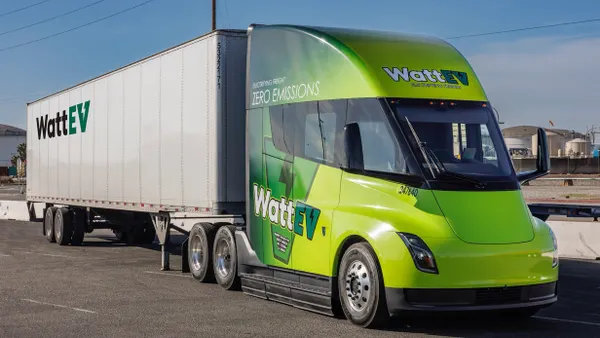Dive Brief:
- United Natural Foods Inc. is deploying two battery-electric semitrucks and five regenerative electric refrigerated trailer systems in the Sacramento, and Gilroy, California, markets, according to an Oct. 17. announcement.
- The grocery wholesaler said the new additions will “reduce fleet fuel life cycle greenhouse gas emissions and harmful pollutants while delivering more efficiently and cost-effectively to our customers.”
- The cost efficiencies tied to the new delivery system further UNFI’s efforts to chase profitability during a turbulent time for the company.
Dive Insight:
UNFI said the truck and trailer system additions provide the company with a zero-emission solution for customer deliveries as well as improve logistics efficiency and lower delivery cost-per-mile.
“The introduction of these efficient electric trucks and refrigerated trailers is a huge step forward, not only toward lowering our delivery costs-per-mile and achieving our own clean transportation goals, but also in helping UNFI achieve California’s ambitious goals on the adoption of zero-emission vehicles,” Nick Selders, UNFI’s vice president of transportation, said in the announcement.
UNFI said it teamed up with Penske Truck Leasing to secure two Class-8 electric trucks, noting that both vehicles have “ample battery range and torque to meet UNFI’s typical freight hauling and delivery needs.” The trailers combined with the trucks are cooled by Carrier’s Vector eCool transport refrigeration unit, which uses power generated by ConMet eMobility’s in-wheel electric motor application that repurposes energy captured during coasting and braking.
The project was sped up due to funding through California’s Hybrid and Zero-Emission Truck and Bus Voucher Incentive Project, Patrick Watt, vice president of alternative vehicle and emerging technology at Penske Truck Leasing, said in the announcement.
UNFI said it’s using the results of a recently completed study on heavy-duty fleet electrification planning to determine the steps to take to implement charging infrastructure and electric vehicles at multiple locations, including its Gilroy facility.
While UNFI said the new delivery system announcement comes ahead of “peak holiday selling season,” the wholesaler has also been working over the last few months to turn around its financial standing after its profitability crumbled in its third quarter, which ended April 29.
In June, UNFI announced a restructuring of its operating regions and plans to cut 150 jobs, mainly in management or supervisory positions. That same month, UNFI unveiled a partnership with Relex Solutions aimed at improving its demand planning and replenishment capabilities. In August, UNFI debuted a platform for suppliers that aims to add value to the company’s CPG services.
Even with these efforts, UNFI recorded weak fourth-quarter results last month. During that earnings call, UNFI said it added three new directors and launched a financial review process as part of an ongoing “transformation agenda” to improve financial performance. A few weeks later, UNFI disclosed the departure of Chris Testa, its president, planned for Oct. 13 as part of the profitability-focused efforts, noting CEO Sandy Douglas would add the title of president.
The addition of the EV trucks also builds upon UNFI’s emissions reduction goals, which include reducing Scope 1 and Scope 3 heavy freight well-to-wheel greenhouse gas emissions from transportation by 38% per tonne kilometer by 2030.
In May 2022, UNFI got its emissions-reduction targets validated by the Science Based Targets initiative, a joint venture between nonprofit CDP, the United Nations Global Compact, the World Resources Institute and the World Wide Fund for Nature aimed at improving companies’ work to reduce greenhouse gas emissions.













